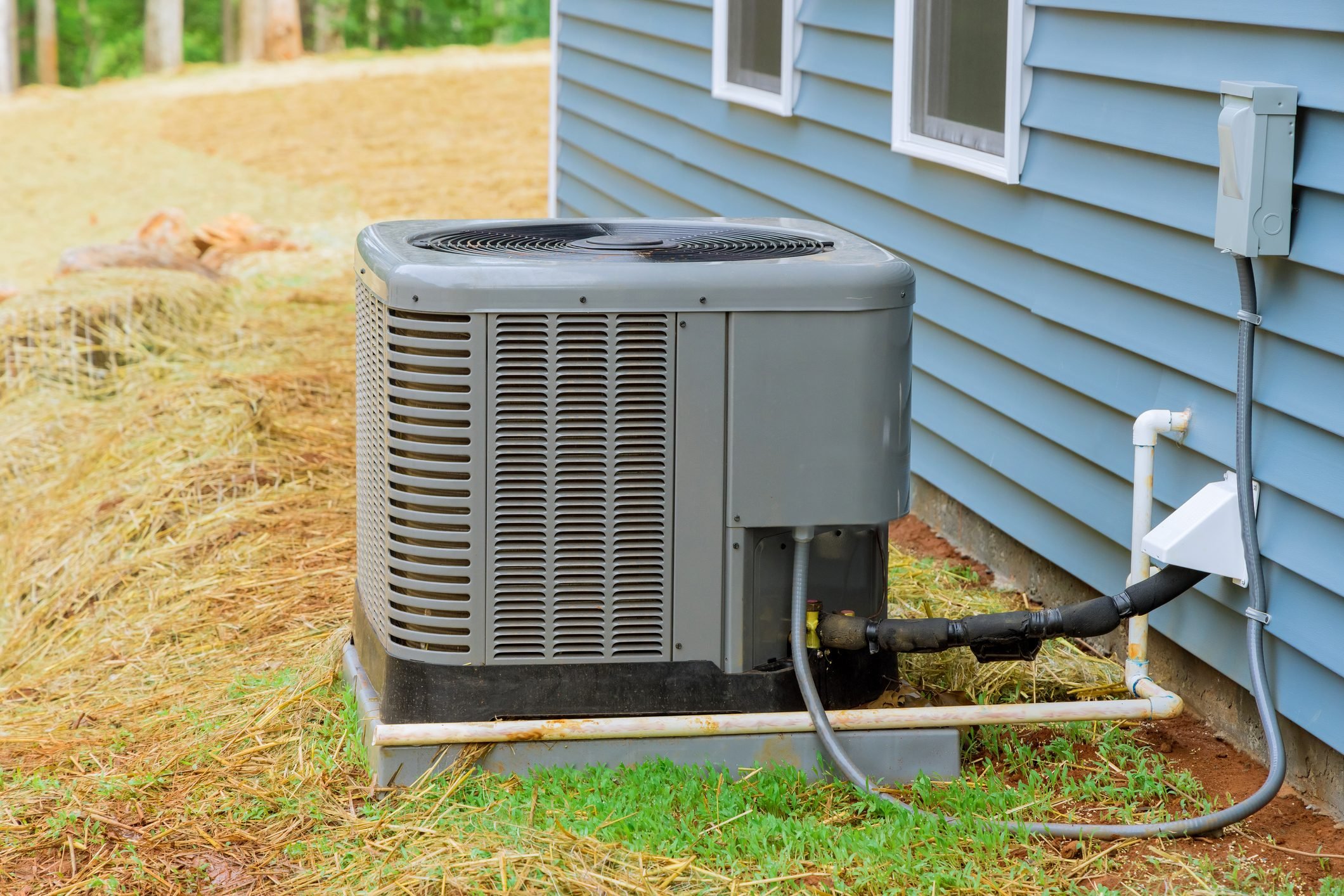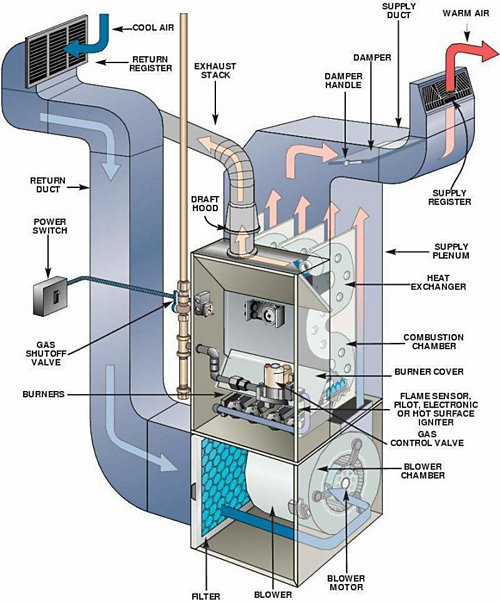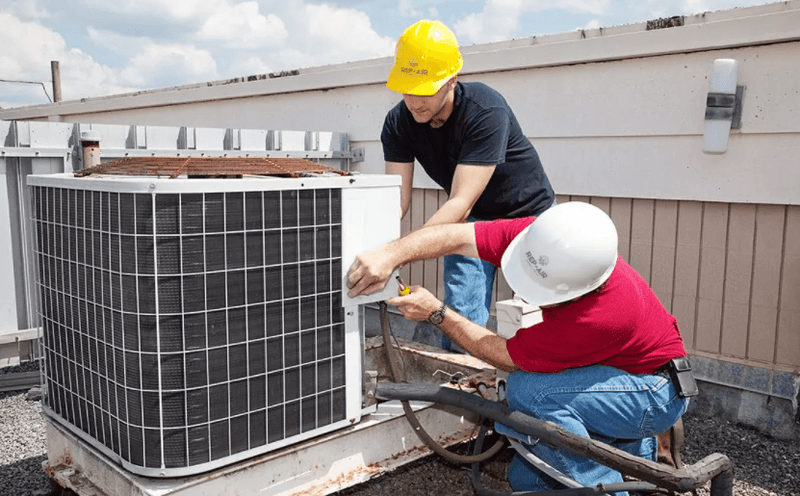Learn how HVAC experts guarantee trouble-free cooling performance
Wiki Article
Discovering the Necessary Parts of an Effective Heating And Cooling System
An effective HVAC system is improved numerous vital components that work in harmony. Each part, from the thermostat to the ductwork, plays a necessary role in preserving comfort and power effectiveness. Recognizing these components is crucial for enhancing efficiency and improving indoor air high quality. As one examines these components, the detailed partnerships between them disclose insights into boosting general system effectiveness. What particular variables contribute most to this effectiveness?The Role of the Thermostat in A/c Performance

Usually ignored, the thermostat plays a critical role in the performance of Heating and cooling systems. This little gadget works as the key control center, controling temperature level settings and guaranteeing perfect comfort within a room. By properly picking up the ambient temperature level, the thermostat communicates with the air, home heating, and ventilation conditioning units to preserve the wanted climate
An effective thermostat lessens power intake by turning on the a/c system only when needed, thus avoiding excessive heating or cooling. Modern programmable and smart thermostats boost this efficiency even more by enabling individuals to establish schedules and remotely adjust setups, adjusting to daily routines.
The positioning of the thermostat is vital; incorrect area can lead to unreliable temperature level analyses, resulting in ineffective operation. Overall, a well-functioning thermostat not only boosts comfort yet also contributes noticeably to power financial savings and the longevity of the HVAC system.
Understanding the Significance of Air Filters
Air filters serve an essential function in HVAC systems by ensuring that the air flowing within a space continues to be healthy and tidy. These filters trap dirt, allergens, and various other pollutants, stopping them from being recirculated throughout the atmosphere. By recording these particles, air filters add to boosted indoor air top quality, which can substantially benefit passengers' health, especially those with allergies or breathing problems.In addition, maintaining tidy air filters improves the effectiveness of heating and cooling systems. Clogged up filters can limit airflow, causing the system to function more challenging to keep preferred temperature levels, causing increased energy usage and higher utility bills. Frequently replacing or cleaning filters is an important upkeep step that can prolong the life expectancy of a/c tools. Eventually, comprehending the significance of air filters enables home owners and structure managers to take positive measures to ensure a well-functioning, reliable heating and cooling system that advertises a risk-free and comfortable indoor setting.

The Functionality of the Furnace and Heatpump
Heating systems and warm pumps are important parts of heating and cooling systems, in charge of offering heat throughout colder months. Heaters operate by home heating air with burning or electrical resistance, then distributing it throughout the home via ducts. They usually supply fast home heating and can be fueled by gas, electrical energy, or oil, depending upon the system kind.Alternatively, warmth pumps move warm instead than create it. They extract heat from the outside air or ground, also in low temperatures, and move it indoors. HVAC experts. This double performance allows heatpump to likewise give air conditioning in warmer months, making them versatile choices for year-round climate control
Both systems require appropriate maintenance to guarantee effectiveness and longevity. While heaters stand out in extreme cold, heat pumps can be beneficial in moderate environments. Recognizing their unique capabilities aids homeowners in selecting one of the most appropriate alternative for their home heating requires.
Checking Out the A/c Unit
The air conditioning unit is an essential element of cooling and heating systems, offered in numerous types to suit various requirements. Recognizing the efficiency rankings of these devices is important for making educated choices regarding power consumption and price. This section will certainly discover the varied types of ac system and clarify exactly how effectiveness ratings influence efficiency.Kinds of Air Conditioners
While numerous aspects affect the option of a/c systems, understanding the different types available is crucial for homeowners and structure supervisors alike. Central air conditioning conditioners are created to cool down whole homes or buildings, using a network of ducts for airflow. Home window devices offer an even more localized service, ideal for single areas or tiny areas. Portable a/c give adaptability, permitting users to move the unit as needed. Ductless mini-split systems are an additional choice, integrating the more info performance of central systems with the benefit of zoning, as they require no ductwork. Ultimately, geothermal systems harness the earth's temperature for energy-efficient cooling. Each type features distinctive advantages, making educated choices important for efficient environment control.
Performance Rankings Discussed
Comprehending performance ratings is crucial for picking the ideal air conditioning unit, as these metrics give understanding into the system's efficiency and energy usage. The most usual score for air conditioning unit is the Seasonal Energy Performance Ratio (SEER), which measures the cooling outcome during a normal air conditioning period separated by the total electrical energy input. A greater SEER suggests much better performance. Furthermore, the Energy Efficiency Proportion (EER) is utilized for determining effectiveness under certain problems. An additional crucial metric is the Energy Celebrity certification, which symbolizes that a system meets strict energy performance standards. By examining these ratings, consumers can make informed choices that not just maximize convenience but additionally reduce power expenses and environmental effect.The Importance of Ductwork and Air flow
Effective ductwork design and air movement administration play important duties in the overall effectiveness and performance of cooling and heating systems. Appropriate ductwork warranties that conditioned air is distributed uniformly throughout a room, minimizing temperature variations and improving convenience. Properly designed ducts reduce resistance to air movement, lowering the workload on cooling and heating tools and inevitably reducing power consumption.Airflow administration includes tactically placing vents and registers to enhance the flow of air. This stops usual concerns such as cool or warm spots, which can occur when air flow is obstructed or inadequately well balanced. In addition, the ideal duct materials and insulation can further enhance performance by decreasing warm loss or gain throughout air transportation.
A reliable ductwork system not just contributes to power cost savings but can also lengthen the life expectancy of heating and cooling equipment by minimizing unnecessary strain (HVAC experts). As a result, understanding the relevance of ductwork and air flow is essential for achieving peak heating and cooling system efficiency
Regular Maintenance Practices to Enhance Efficiency
Routine upkeep methods are necessary for making certain peak efficiency of HVAC systems. These methods include regular assessments, cleaning, and essential fixings to keep the system running efficiently. Frequently changing air filters is vital, as stopped up filters can block air movement and minimize efficiency. In addition, technicians must check and clean evaporator and condenser coils to stop overheating and energy wastage.Yearly specialist inspections are additionally advised, as skilled technicians can recognize possible issues before they intensify. Lubing moving parts decreases wear and tear, adding to a longer life expectancy for the system. Furthermore, guaranteeing that the thermostat functions properly help in maintaining perfect temperature level control.

Often Asked Inquiries
Just how Frequently Should I Change My Thermostat?
Thermostats ought to typically be replaced every 5 to ten years, depending on usage and technology improvements. Normal checks are advisable to assure peak performance, particularly if experiencing inconsistent temperature level control or enhanced energy expenses.What Size Air Filter Is Best for My Heating And Cooling System?
The best dimension air filter for an a/c system varies by unit design. Commonly, it's important to seek advice from the proprietor's manual or examine the existing filter measurements to ensure peak efficiency and air quality.Can I Install a Heatpump Myself?
Installing a heat pump separately is feasible for skilled people, but it requires knowledge of electric systems and regional codes. Working with an expert is advised to guarantee appropriate installment and excellent system performance.Just how Do I Know if My Ductwork Is Efficient?
To identify ductwork effectiveness, one ought to look for leaks, action airflow at vents, evaluate insulation top quality, and examine temperature level differences in between supply and return air ducts. Expert analyses can supply extensive insights right into general performance.What Are Signs My HVAC Needs Immediate Maintenance?
Signs that a heating and cooling system needs prompt maintenance consist of uncommon noises, irregular temperatures, raised energy costs, unpleasant smells, and regular cycling. Addressing these problems immediately can protect against further damage and assurance height system efficiency.Air filters serve an important function in A/c systems by guaranteeing that the air circulating within a space continues to be clean and healthy. Additionally, preserving tidy air filters boosts the efficiency of HVAC systems. Ductless mini-split systems are another alternative, combining the effectiveness of main systems with the benefit of zoning, as they need no ductwork. Comprehending efficiency rankings is important for picking the right air conditioning unit, as these metrics offer understanding into the system's performance and power consumption. The ideal dimension air filter for a Heating and cooling system varies by unit design.
Report this wiki page